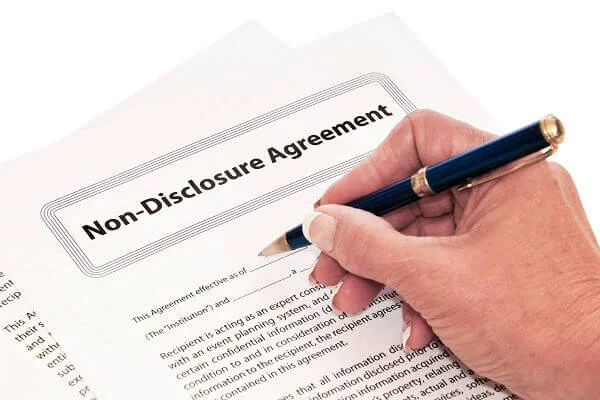Attorneys Serving California Clients
For some employers, a necessary part of any employment relationship is the assurance that your employee will not be able to share confidential information or trade secrets learned during the course of employment.
For those dealing in highly competitive fields it can be crucial to ensure that your employees will be legally prohibited from passing such information on to others. This is one of the primary reasons for non-disclosure agreements.
In California, non-disclosure agreements are generally legal, but they must be properly drafted or they can be deemed unenforceable. In order to avoid bigger problems down the road, employers should take the time to ensure that their current agreements are enforceable as written.
What Can Non-Disclosure Agreements Legally Prohibit Rancho Cucamonga Residents from Sharing?
Properly drafted non-disclosure agreements can prohibit employees from sharing a broad range of confidential business information. For example, they can protect:
Proprietary information
Trade Secrets
Prototypes or other technology not yet patented
Customer lists and contact information
In California, trade secrets must meet a very specific definition. A trade secret must be a specific formula, pattern, device, etc., that is valuable precisely because it is not known to the general public. Also, there must be reasonable efforts undertaken to protect its secrecy. Non-disclosure agreements cannot simply claim to prohibit sharing information regarding trade secrets without showing that a trade secret actually exists.
Non-disclosure agreements also cannot prevent an employee from discussing absolutely anything related to an employer or a business, with no limitations in scope whatsoever. This type of non-disclosure would be considered overly broad and unduly restrictive, since it would be almost impossible to abide by.
What Does an Enforceable Non-disclosure Agreement Require?
Legally enforceable non-disclosure agreements should include certain key provisions. First, they should clearly identify the parties to the agreement, including the employer, the employee and any other relevant parties or individuals. Second, the agreement should set forth exactly how long it is enforceable. The time limit for an agreement must be reasonable, and courts typically will not uphold an overly long period such as 50 years or more.
Next, the agreement should set forth precisely what the scope of the confidential information is, with sufficient clarity for the employee to understand what cannot be discussed. For example, if there are certain proprietary procedures that are protected under the agreement, these should be clearly identified.
Additionally, the agreement should also clearly explain what the employee’s obligations are as far as keeping the information confidential. And these obligations must be reasonable. For example, an employee whose information is stolen without his knowledge normally would not be held to have violated a non-disclosure agreement – unless he failed to abide by certain security obligations in the agreement.
Finally, the agreement should set forth information and terms for what is excluded from the non-disclosure agreement. For instance, if a certain recipe is deemed confidential, the agreement should make clear whether the details of the recipe are protected from disclosure, or if even reference to the recipe altogether is prohibited.
California Lawyers Helping You Draft a Strong Non-Disclosure Agreement
The best way to protect your company’s secrets from disclosure is to ensure that your non-disclosure agreement is as legally enforceable as possible. This requires continuous review of your policies, procedures, and draft documents to ensure that they are up-to-date with California laws.
At CKB Vienna LLP, our attorneys can help you review whether your nondisclosure agreement contains all the necessary terms and provisions, and has a scope that is not overly broad. For more information, contact us online or at 909-980-1040.

